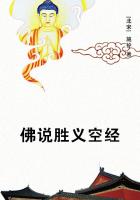It is now some twenty-two years since I left my father's house, and all that time, though I have written several letters, I have had no news whatever of him or of my brothers; my own adventures during that period I will now relate briefly. I embarked at Alicante, reached Genoa after a prosperous voyage, and proceeded thence to Milan, where I provided myself with arms and a few soldier's accoutrements; thence it was my intention to go and take service in Piedmont, but as I was already on the road to Alessandria della Paglia, I learned that the great Duke of Alva was on his way to Flanders. I changed my plans, joined him, served under him in the campaigns he made, was present at the deaths of the Counts Egmont and Horn, and was promoted to be ensign under a famous captain of Guadalajara, Diego de Urbina by name. Some time after my arrival in Flanders news came of the league that his Holiness Pope Pius V of happy memory, had made with Venice and Spain against the common enemy, the Turk, who had just then with his fleet taken the famous island of Cyprus, which belonged to the Venetians, a loss deplorable and disastrous. It was known as a fact that the Most Serene Don John of Austria, natural brother of our good king Don Philip, was coming as commander-in-chief of the allied forces, and rumours were abroad of the vast warlike preparations which were being made, all which stirred my heart and filled me with a longing to take part in the campaign which was expected; and though I had reason to believe, and almost certain promises, that on the first opportunity that presented itself I should be promoted to be captain, I preferred to leave all and betake myself, as I did, to Italy; and it was my good fortune that Don John had just arrived at Genoa, and was going on to Naples to join the Venetian fleet, as he afterwards did at Messina. I may say, in short, that I took part in that glorious expedition, promoted by this time to be a captain of infantry, to which honourable charge my good luck rather than my merits raised me; and that day- so fortunate for Christendom, because then all the nations of the earth were disabused of the error under which they lay in imagining the Turks to be invincible on sea-on that day, I say, on which the Ottoman pride and arrogance were broken, among all that were there made happy (for the Christians who died that day were happier than those who remained alive and victorious) I alone was miserable; for, instead of some naval crown that I might have expected had it been in Roman times, on the night that followed that famous day I found myself with fetters on my feet and manacles on my hands.
It happened in this way: El Uchali, the king of Algiers, a daring and successful corsair, having attacked and taken the leading Maltese galley (only three knights being left alive in it, and they badly wounded), the chief galley of John Andrea, on board of which I and my company were placed, came to its relief, and doing as was bound to do in such a case, I leaped on board the enemy's galley, which, sheering off from that which had attacked it, prevented my men from following me, and so I found myself alone in the midst of my enemies, who were in such numbers that I was unable to resist; in short I was taken, covered with wounds; El Uchali, as you know, sirs, made his escape with his entire squadron, and I was left a prisoner in his power, the only sad being among so many filled with joy, and the only captive among so many free; for there were fifteen thousand Christians, all at the oar in the Turkish fleet, that regained their longed-for liberty that day.
They carried me to Constantinople, where the Grand Turk, Selim, made my master general at sea for having done his duty in the battle and carried off as evidence of his bravery the standard of the Order of Malta. The following year, which was the year seventy-two, I found myself at Navarino rowing in the leading galley with the three lanterns. There I saw and observed how the opportunity of capturing the whole Turkish fleet in harbour was lost; for all the marines and janizzaries that belonged to it made sure that they were about to be attacked inside the very harbour, and had their kits and pasamaques, or shoes, ready to flee at once on shore without waiting to be assailed, in so great fear did they stand of our fleet. But Heaven ordered it otherwise, not for any fault or neglect of the general who commanded on our side, but for the sins of Christendom, and because it was God's will and pleasure that we should always have instruments of punishment to chastise us. As it was, El Uchali took refuge at Modon, which is an island near Navarino, and landing forces fortified the mouth of the harbour and waited quietly until Don John retired. On this expedition was taken the galley called the Prize, whose captain was a son of the famous corsair Barbarossa. It was taken by the chief Neapolitan galley called the She-wolf, commanded by that thunderbolt of war, that father of his men, that successful and unconquered captain Don Alvaro de Bazan, Marquis of Santa Cruz; and I cannot help telling you what took place at the capture of the Prize.
The son of Barbarossa was so cruel, and treated his slaves so badly, that, when those who were at the oars saw that the She-wolf galley was bearing down upon them and gaining upon them, they all at once dropped their oars and seized their captain who stood on the stage at the end of the gangway shouting to them to row lustily; and passing him on from bench to bench, from the poop to the prow, they so bit him that before he had got much past the mast his soul had already got to hell; so great, as I said, was the cruelty with which he treated them, and the hatred with which they hated him.















